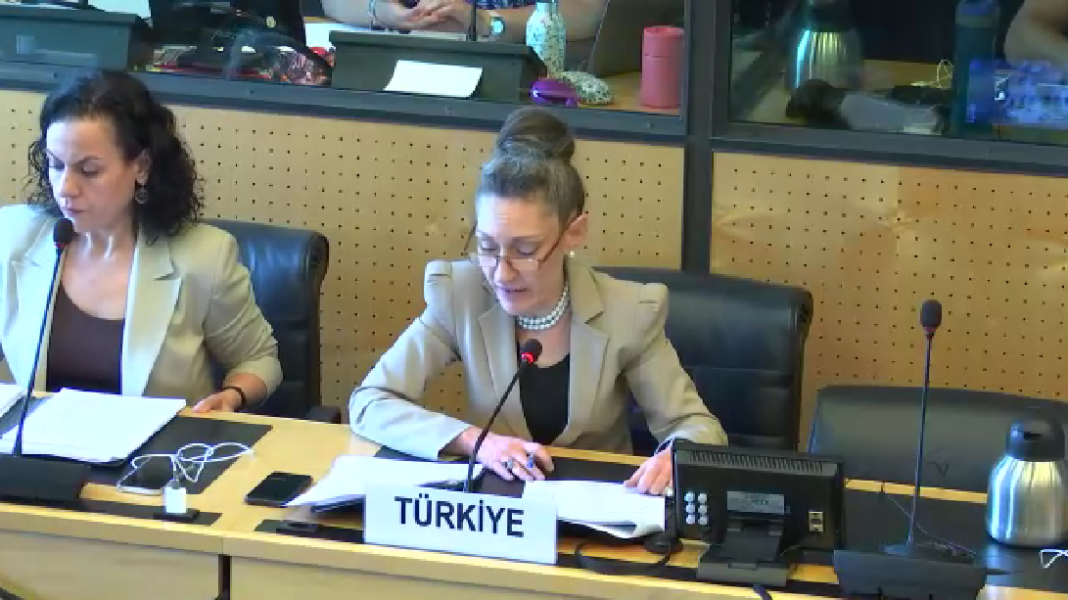The UN Committee Against Torture on Friday published its findings on several countries which were reviewed in its latest session, expressing alarm at allegations that torture and ill-treatment continue to occur in Turkey, including beatings and sexual assault by law enforcement officers, the Stockholm Center for Freedom reported.
The committee called for prompt, impartial and effective investigations into allegations and demanded that officers found guilty be “punished commensurately with the gravity of their crimes.”
Regarding the erosion of the independence of the judiciary in the country, the committee recalled the mass dismissal of judges and prosecutors in the aftermath of a failed coup in July 2016, which it said has had a potential impact affecting the investigation and prosecution of allegations of torture.
Turkey’s intelligence-led extraterritorial abductions after 2016 was also highlighted in the conclusions released by the UN body, particularly the rendition of people with alleged links to the Gülen movement, a faith-based group targeted by the Turkish government.
“The Committee expresses its concern over allegations regarding a systematic practice of state-sponsored extraterritorial abductions and forcible return of individuals allegedly associated with the Hizmet/Gülen movement in coordination with authorities in Afghanistan, Albania, Azerbaijan, Cambodia, Gabon, Kosovo, Kazakhstan, Lebanon, and Pakistan, as previously raised by several special procedures mandate holders,” the statement read.
Turkish President Recep Tayyip Erdoğan has been targeting followers of the Gülen movement, inspired by Muslim cleric Fethullah Gülen, since the corruption investigations of 2013, which implicated then-prime minister Erdoğan, his family members and his inner circle.
Dismissing the investigations as a Gülenist coup and conspiracy against his government, Erdoğan designated the movement as a terrorist organization and began to target its members. He intensified the crackdown on the movement following the abortive putsch in July 2016 that he accused Gülen of masterminding. Gülen and the movement strongly deny involvement in the coup attempt or any terrorist activity.
Another concern raised by the committee was what it called the regime of aggravated life imprisonment, emphasizing the situation of prisoners reportedly kept isolated in cells for over 22 hours per day in de facto solitary confinement.
The committee also noted that some of these prisoners had no prospect of release.
One person whose life imprisonment received particular attention in the UN’s statement was Abdullah Öcalan, the jailed leader of the Kurdistan Workers’ Party (PKK) who has been unable to contact his family or lawyers since March 2021.
A separatist group waging war against the Turkish state since the 1980s, the PKK is listed as a terrorist group by Turkey and its Western allies. Initially given the death penalty, Öcalan’s sentence was commuted to life imprisonment after Turkey abolished capital punishment, a sentence he has been serving in the island prison of İmralı since 1999.
The committee recommended that Ankara consider abolishing the penalty of aggravated life imprisonment.
Other issues addressed by the committee and were subject to its recommendations for improvement included poor conditions of detention, arbitrary strip-searches of inmates, detention conditions of women accompanied by their young children or infants, arbitrary denial of parole by prison observation boards and excessive use of force by law enforcement against protesters.
Torture in custody and in prisons is a systematic problem in Turkey about which local rights groups, parliamentarians and state authorities receive hundreds of complaints every year. Earlier this year, the Parliamentary Assembly of the Council of Europe (PACE) adopted a resolution that expressed concern about an increase in alleged incidents reported from Turkey in past years.
After the attempted coup in 2016, ill-treatment and torture became widespread and systematic in Turkish detention centers. Lack of condemnation from higher officials and a readiness to cover up allegations rather than investigate them have resulted in widespread impunity for the security forces.


